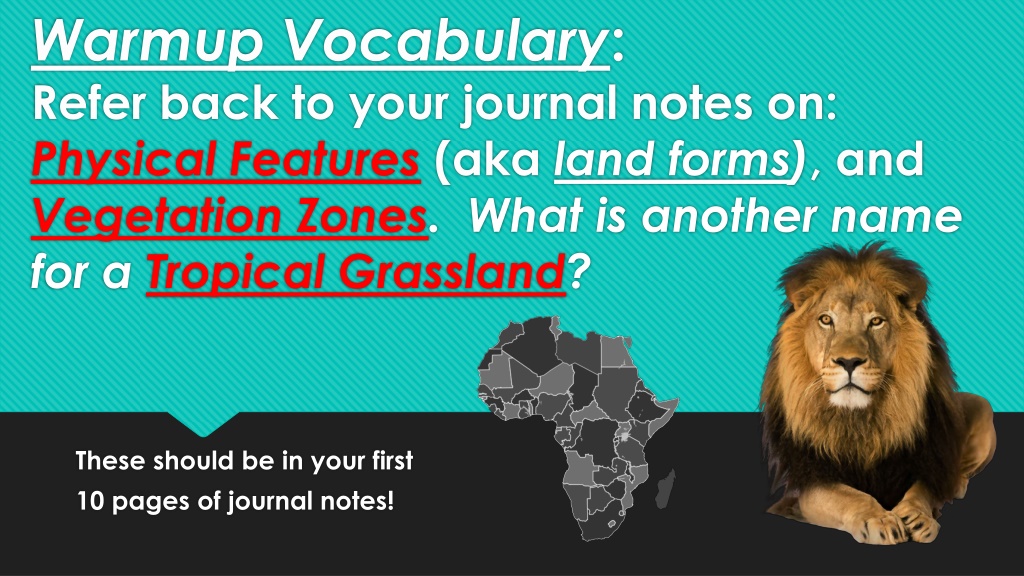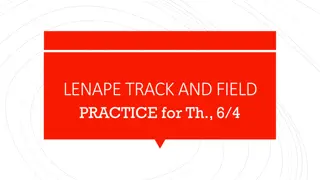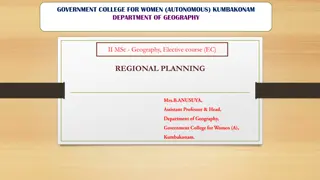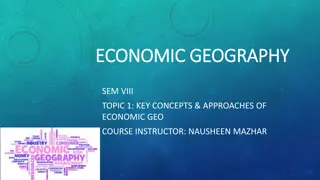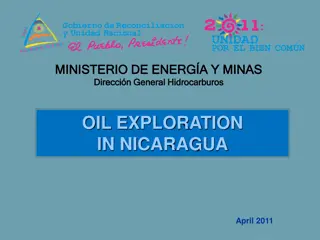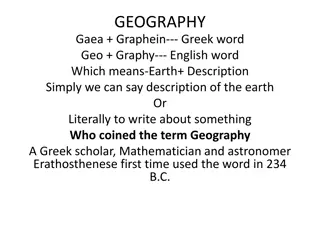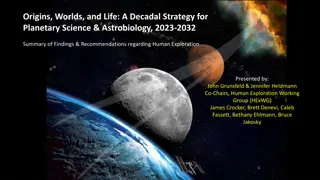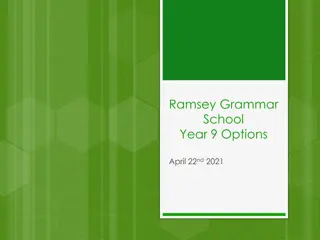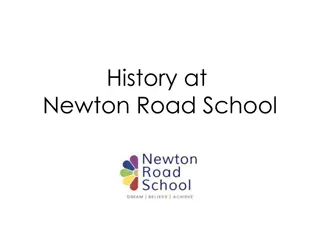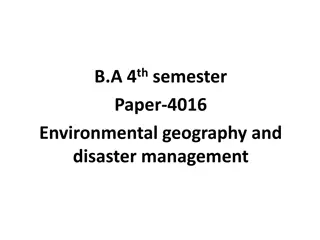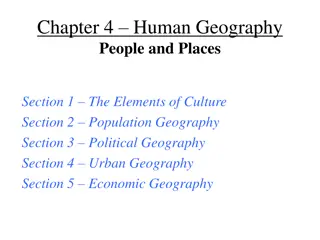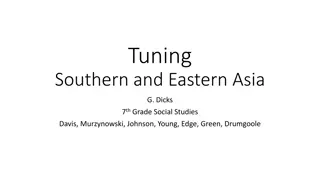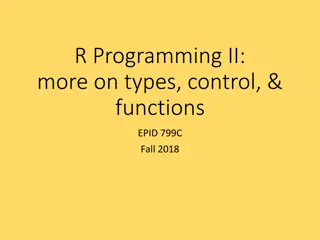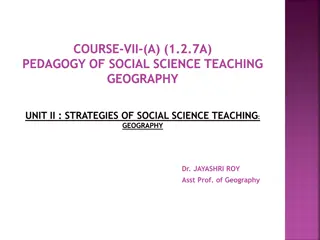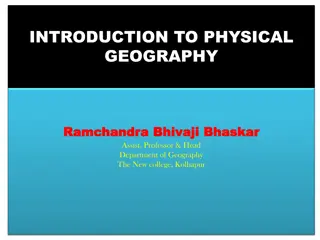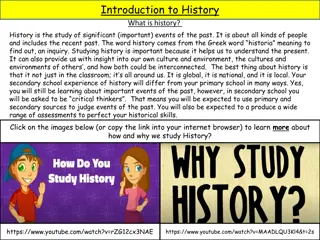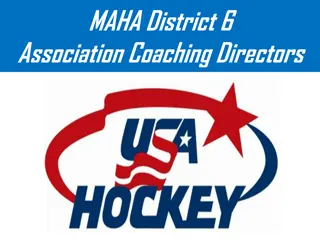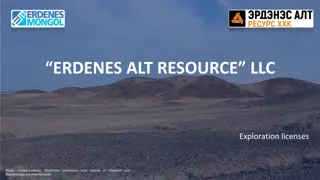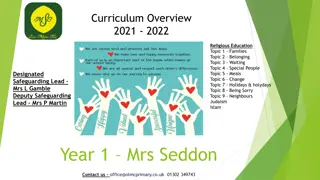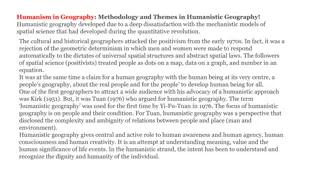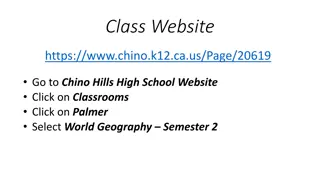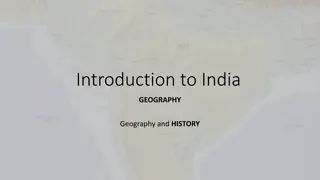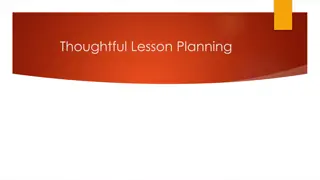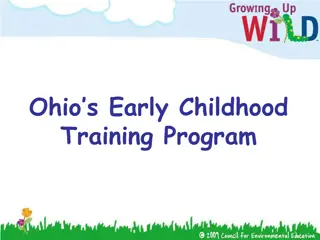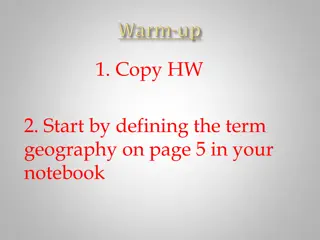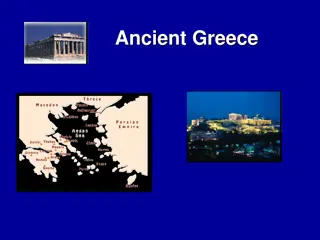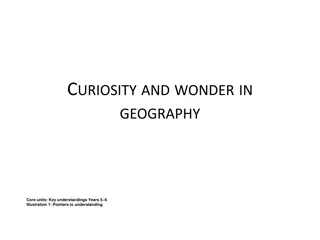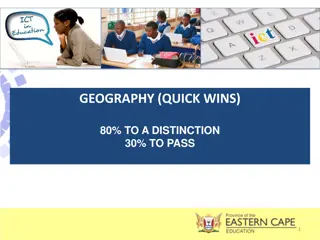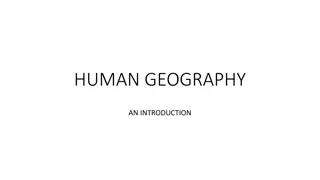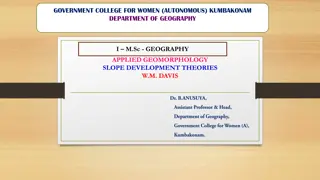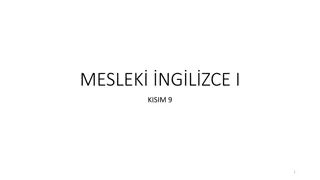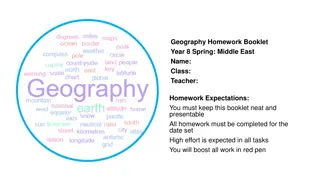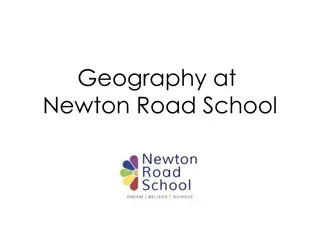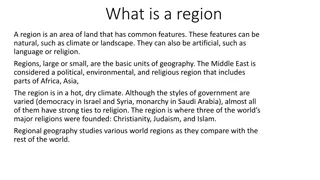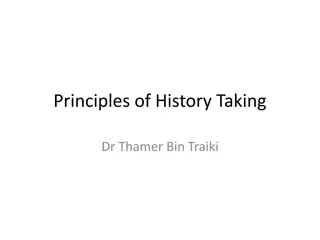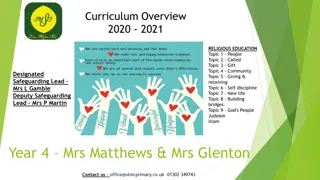Geography and History Exploration through Warmup Activities
Dive into the exploration of physical features, vegetation zones, and historical events through engaging warmup activities. Discover concepts like tropical grasslands, indigenous cultures, colonization, and key historical milestones. Enhance your understanding of geography and history in a creative and interactive manner.
Download Presentation

Please find below an Image/Link to download the presentation.
The content on the website is provided AS IS for your information and personal use only. It may not be sold, licensed, or shared on other websites without obtaining consent from the author. Download presentation by click this link. If you encounter any issues during the download, it is possible that the publisher has removed the file from their server.
E N D
Presentation Transcript
Warmup Vocabulary: Refer back to your journal notes on: Physical Features (aka land forms), and Vegetation Zones. What is another name for a Tropical Grassland? These should be in your first 10 pages of journal notes!
Day 1 Monday: Physical Geography & Climate What are the main geographical features (physical features) in your country? Where are they located? What is the vegetation like (vegetation zones)? Describe the seasonal climate & annual precipitation. Hint: an example of a 4+ addition: Why are they there? (physical features) Relax great research isn t done in a day.
Grading Rubric for Research You went above and beyond the assigned task. You created or presented new information that was not presented in class. You connected class information to information not learned in class. You completed your assignment in a new, creative way. 4+ (100) You explained all parts of the assigned task with specific details; one part may not be as fully developed as others You included an effective analysis of ideas and relationships related to the task. Facts, events, and concepts on the topic were well developed. Your ideas were focused on the assigned task. 4 (95) You explained most parts of the assigned task with some supporting details. You included analysis of some ideas and relationships related to the task. Facts, events, and concepts on the topic were developed. Most of your ideas were focused on the assigned task. 3 (85) You addressed the assigned task but need to further explain concepts. Ideas and relationships related to the task are partially addressed. Facts, events, and concepts on the topic were minimally developed. Some of your ideas were focused on the assigned task. 2 (75) You are at the beginning level of understanding the assignment, but it can be improved. You need to include ideas and relationships in the assignment. Your ideas need to be clear, need to relate to the assignment, or need improvement. Adding more to the assignment will show knowledge and understanding. 1 (65)
Warmup Vocabulary: Indigenous (aka native): originating in a particular region or country. Colonization: leaving your native country and establishing a new settlement on foreign land. Apartheid: any system or practice that separates people according to color, ethnicity, caste, etc. Coup d' tat: a sudden action in politics (usually forceful) resulting in a change of government or leadership; an overthrow. Log in to your chromebook and go to my Webpage when you have completed these notes!
Day 2 Thursday: History Briefly explain (summarize) all of the major historical events in your country. Make sure to include these (if available): 1. How long ago were indigenous people groups known to have lived there. What was that civilization like? 2. When did colonization first begin there, and who was it? TIP: It is best to summarize history into chunks of time rather than using lots of detail for each event. Make it simple. Make it interesting. Don t dive into too much detail. You re giving the rest of the class a brief outline, not a full history lesson.
Warmup Vocabulary: Political: refers to the government. Referendum: a vote on a matter, or a plan or proposal that requires a vote. Congress: one of the governing organizations usually seen in a modern democracy; consists of many elected officials. United Nations (UN): an international organization established after WWII with the goal of promoting co-operation and peace. Log in to your chromebook and go to my Webpage when you have completed these notes!
Day 3 Friday: History Day 2 Briefly explain (summarize) all of the major historical events in your country. Make sure to include these (if available): 1. How long ago were indigenous people groups known to have lived there. What was that civilization like? 2. When did colonization first begin there, and who was it? TIP: It is best to summarize history into chunks of time rather than using too much detail for each event. Make it simple and easy to understand. When you are done, please use your time to incorporate the vocabulary terms into your information.
Day 4 Monday: Government/Economy Government/Economy: Tell us what type of government your country has and compare it to the Republic (Democracy) of United States? Has the government system always been the way that it is now? What did their government used to be like? Is the economy more of a MARKET or COMMAND economy? How do you know? How does their GDP (which is how much a country spends on new and finished products every year) compare to the GDP of the USA? How does the GDP per capita (the average income per person) compare to that of the USA? Focus. 1 day for this ONLY.
Day 5 Tuesday: Culture PART 1 (CUSTOMS AND COURTESIES/LIFESTYLE): GREETINGS, GESTURES, VISITING THE COUNTRY, FOOD/FAMILY, HOUSING, DATING/MARRIAGE, LIFE CYCLE, DIET, RECREATION, THE ARTS, HOLIDAYS Focus. 1 day for this ONLY.
Day 6 Wednesday: Culture PART 2 (THE PEOPLE): POPULATION, LANGUAGE, RELIGION, GENERAL ATTITUDES, and PERSONAL APPEARANCE Focus. 1 day for this ONLY.
